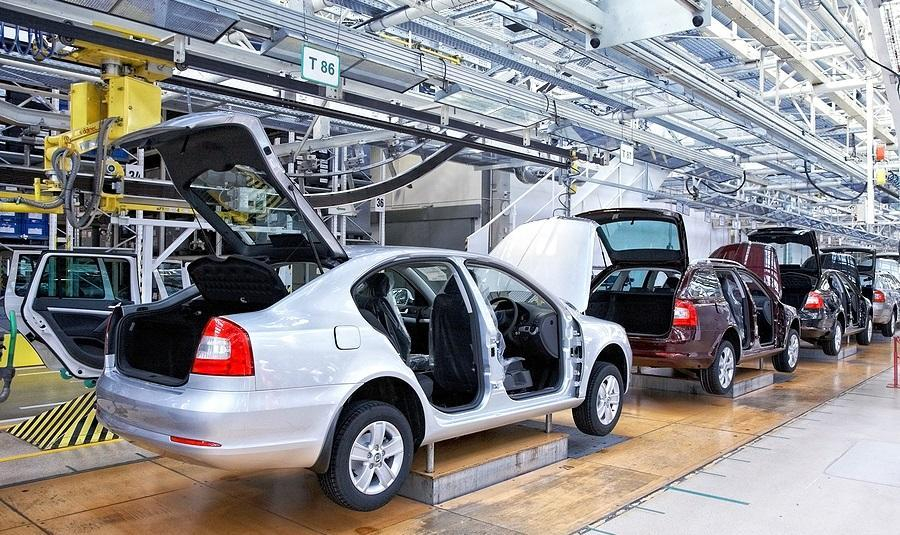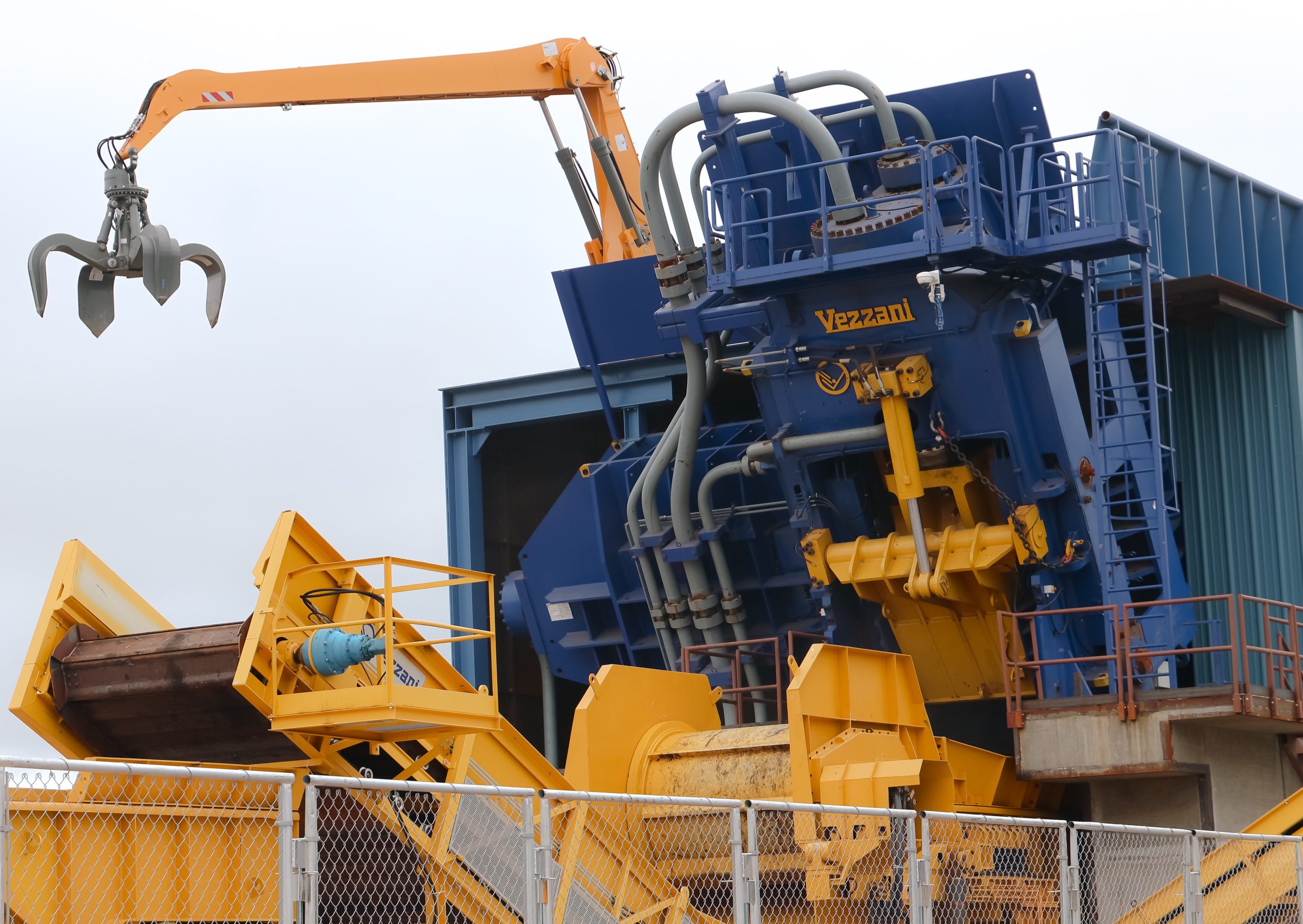Market

April 21, 2021
Auto Outage Update: Some Plants Restarting, Others Down Through May
Written by Michael Cowden
The global semiconductor shortage continues to disrupt North American vehicle production roughly four months after the issue emerged in a key steel end market.
The result: Production at multiple North American assembly plants is down through the end of this month, and some are down in May as well.
Here is where things stand to date.
General Motors
The Detroit-based automaker, the United States’ largest, this week resumed operations at its Spring Hill, Tenn., assembly plant and at its Landing Delta Township plant in Michigan. Both plants had been idled since the week of April 12 and had initially been expected to be down this week as well, a company spokesman said.
The automaker has in addition managed to avoid stopping production of the Chevrolet Blazer SUV at its Ramos Arizpe assembly plant in Mexico, something that had initially been slated to take place this week.
“Our supply chain organization has made strides working with our supply base to mitigate the near-term impacts of the semiconductor situation,” the GM spokesman said.
But other facilities will continue to see reduced output or extended downtime.
GM’s assembly plant in Wentzville, Mo., will drop from three shifts to two beginning the week of April 26. Stamping, body and paint shops at Wentzville will remain on three shifts, the spokesman said.
GM’s Fairfax assembly plant in Kansas City, Kan., and at its CAMI assembly plant in Ingersoll, Ontario, will continue to be idled through the week of May 10. Both have been down since Feb. 8.
And GM’s Lansing Grand River assembly plant in Michigan is still slated to be down through the week of April 26. It has been down since March 15.
In South America, meanwhile, GM’s Gravatai plant in Brazil forecasts that production will be suspended for the balance of April and for all of May.
“We will attempt to make up as much production lost as possible,” the spokesman said. He declined to quantify, as did most other automakers, how much production had been lost as a result of parts shortages.
Stellantis
Stellantis, formerly known as Chrysler, resumed production at its Brampton, Ontario, assembly plant on Monday, April 19, a company spokeswoman said.
But production at its Belvidere, Ill., Toluca, Mexico; and Windsor, Ontario, facilities will be down through the end of April, she said.
And Stellantis will stop production at its Warren Truck assembly plant in Michigan through the end of May, the spokeswoman said.
The company had previously said that production at those plants would be suspended through mid-April.
“Stellantis continues to work closely with our suppliers to mitigate the manufacturing impacts caused by the various supply chain issues facing our industry,” the spokeswoman said.
Nissan
Nissan, too, continues to grapple with the chip shortage.
The automaker will cancel the Sunday night shift and the Friday days shift at its plant in Smyrna, Tenn., for the rest of April, a company spokeswoman said.
And Nissan’s Canton, Miss., assembly plant will cancel the Sunday night shift and Friday day shift for the balance of the month as it pertains to production of the Titan and Frontier pickup trucks. Nissan has also decided to cancel all production of the Altima car on April 21, April 22-23, and April 26-27.
In Mexico, Nissan plans to stop production at its Aquascalientes (Plant 1) on April 24, the spokeswoman said.
“We continue to work closely with our supplier partners to assess the impact of supply chain issues and minimize disruption for vehicle deliveries to our dealers and customers,” she said.
Subaru
Subaru has halted production at its assembly plant in Lafayette, Ind.–its sole facility in the U.S.–this week and next. The 10 days of downtime are necessary because of the semiconductor shortage, a company spokesman said.
“Approximately 15,000 vehicles are expected to be affected. Production is expected to resume on May 3,” he said.
Subaru plans to make 325,000 vehicles at the Lafayette plant in fiscal year 2021. That’s down 11.5% from 367,295 in fiscal 2020 and down 12.7% from 372,162 in fiscal 2019, according to the company’s website.
Subaru’s fiscal year begins on April 1 and ends on March 31 of the following calendar year.
Everyone Else (Almost)
Honda said that some of its North American operations had reduced output because of parts shortages. The automaker declined to provide information about specific plants.
“This is a fluid situation, so we will not be providing plant- or model-specific information,” the company said in a statement.
And some automakers are at full speed again, at least for now. Case in point: Toyota’s North American division. “All plants are running back to normal at this point,” a company spokesman told SMU.
Toyota had previously idled plants in Kentucky, West Virginia, Mississippi, Texas and Mexico on a combination of COVID-19, severe weather and parts shortages. But the company is not out of the woods yet.
“The situation remains fluid and complex. We will continue to monitor and develop countermeasures to minimize future impact on production,” the spokesman said.
Mercedes-Benz assembly plants in Tuscaloosa, Ala., and Charleston, S.C., are also running as usual, a spokeswoman for parent company Daimler said.
Ford had not responded to a request for a status update at the time this article was filed.
Why It Matters
Automakers are a key end market for flat rolled steel. And the average passenger vehicle consumes approximately one ton of steel.
Auto companies are also key generators of prime scrap, an essential raw material for electric-arc furnace (EAF) steelmakers, through processes such as stamping.
The result of automotive shutdowns–as became apparent last year when automakers closed en masse following the COVID-19 outbreak–was that demand for finished product dropped and prices for raw materials shot upward.
No automaker agreed to provide SMU with data on the parts shortage’s impact on their steel consumption and prime scrap generation.
And steelmakers to date have brushed aside the chip shortage as mostly a distraction from otherwise strong demand, including from the automotive sector.
SDI President and CEO Market Millett estimated that the chip shortage will result in 1.0 million to 1.5 million fewer vehicles being produced.
“But the plants that are down are not ones that we supply. So we have not seen any material impact from a shipping standpoint,” he said.
The EAF steelmaker has seen “a slight impact” on the scrap side. “I think prime scrap is probably going to be firm, maybe up a little, but then again it’s too early to tell,” Millett said.
And flat-rolled steel prices remain at record highs. Steel Market Update’s average hot-rolled coil price stands at $1,410 per ton ($70.50/cwt), up 8.5% from $1,300 a month ago and up 43.1% from $985 per ton at the beginning of the year.
By Michael Cowden, Michael@SteelMarketUpdate.com
The post Auto Outage Update: Some Plants Restarting, Others Down Through May appeared first on Steel Market Update.






